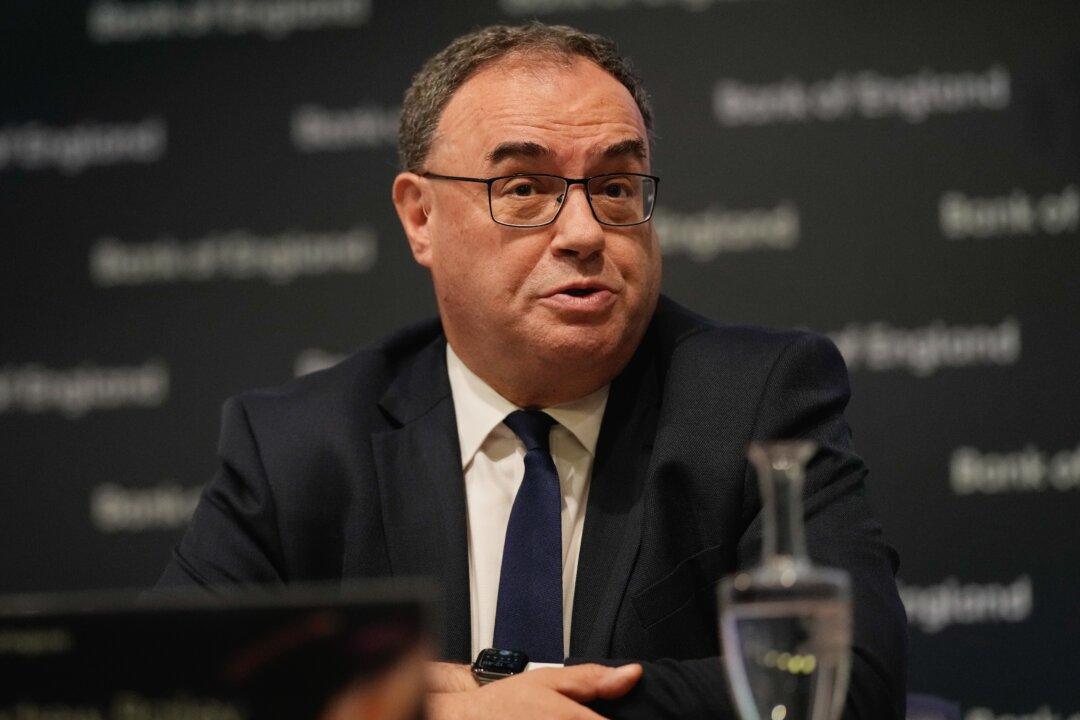The Bank of England (BoE) raised its base rate by a further 0.25 percent on Aug. 3, to 5.25 percent.
It’s the 14th consecutive time that the central bank has ramped up its overnight lending rate, which is now at its highest level since April 2008.

The Bank of England (BoE) raised its base rate by a further 0.25 percent on Aug. 3, to 5.25 percent.
It’s the 14th consecutive time that the central bank has ramped up its overnight lending rate, which is now at its highest level since April 2008.